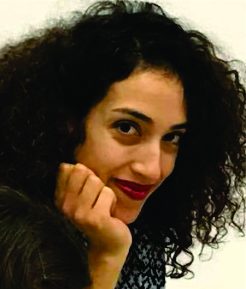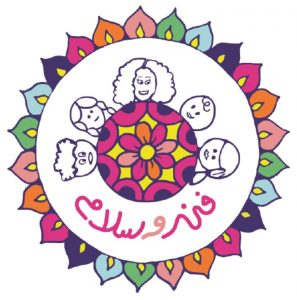During my childhood and adolescence, I was never at peace with the idea of a routine. I was the child who was interested in thousands of things and eager to try, experiment, and discover. Fortunately, my brother and I are gifted with parents who encouraged us to discover the world by ourselves and to free our minds and wonder.
We loved “Let’s pretend to be…” games. On most afternoons, we would gather with friends in al-harah (the neighborhood), and we usually agreed to play “Intifada.” We would then cooperate in building the environment for our game: pile up stones to make walls on an empty piece of land and design our own slingshots to strike the imagined Israeli soldiers. Our role was to protect each other and our land. Throughout the years that we played this game, none of us ever suggested that we split into two teams… our imagination created a scenario based on the conviction that none of us wanted to play the role of an Israeli soldier.
When I recall my childhood memories of living in Palestine during the 1990s and early 2000s, the first ideas that come to mind are family, support, eagerness to explore, many types of play, face-to-face communication, imagination, nature, using our bare hands, experimenting with tools, teamwork, and awareness of our surroundings. The age of technology has supplanted many such activities for today’s generation, and not always to the benefit of children.
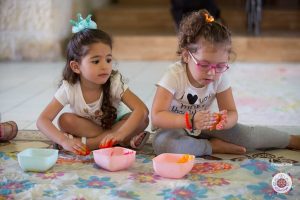
Children think in ways that are different from how adults think. According to Piaget’s Theory of Cognitive Development, a child goes through four stages of development, namely, the sensorimotor stage (birth to 2 years), the preoperational stage (2 to 7 years), the concrete operational stage (7 to 11 years), and the formal operational stage (11 years and older). During these stages, children gradually expand their field of consciousness from the family to society, they move from understanding through the senses to comprehension, initially through imagination and symbolism and finally through logic and abstraction. Children also learn that they are unique in some ways and similar to others in some ways. The environment to which the children are exposed and the activities in which they engage may foster or hinder their positive development.
“If you ask most smart or successful people where they learned their craft, they will not talk to you about their time in school. It’s always a mentor, a particularly transformative job, or a period of experimentation or trial and error.” Ryan Holiday
When I was a young adult, the base of my search for my life’s purpose was in experimenting, exploring, and sharing my skills and ideas. I wanted to contribute to society as an educator. Yet I wondered whether I really wanted to work eight hours a day in a job that wouldn’t allow me to give wholeheartedly or in a school system that was overtly strict, with limited space for creativity.
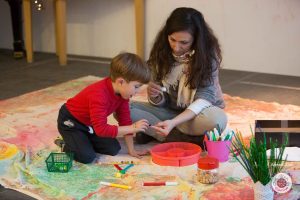
Christmas tree ornaments.
I began to envision a space in which I could bring to life my ideas about a beautiful childhood for the rising generations who are consumed by a virtual reality and unfamiliar with the idea of going outside to play and get messy. I wanted to be down to earth, both literally and metaphorically, and explore together with children. I founded Fann wa Salam to offer workshops and activities in which nature is a main pillar of learning. The nature that surrounds us is shrinking. But Fann wa Salam presents children with a chance to explore and learn by doing.
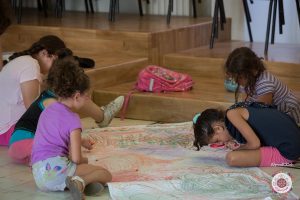
In our modern society, children are expected to compete and win. Such an environment limits creativity. Instead, we should and can foster an environment where the teacher and the child learn from each other, thus stressing the importance of cooperation and teamwork. It is important to present to children an environment where they can explore a variety of possibilities and express themselves, starting from scribbles and progressing until they realize that indeed they are creators.
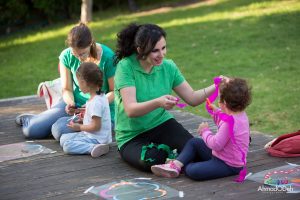
my hands and tools.
The culture that accepts diversity is a culture that is open and eager to develop and grow. Therefore, Fann wa Salam nurtures the idea of acceptance. Whether a child has one interest and talent or many, it may take time to discover them. The mindset that fosters exploration and practice by doing creates the mentality that anything is possible as long as we try or are willing to draw outside the lines. Anything is possible as long as the mind remains motivated and challenged to grow.
Article photos by Ahmad Odeh.

